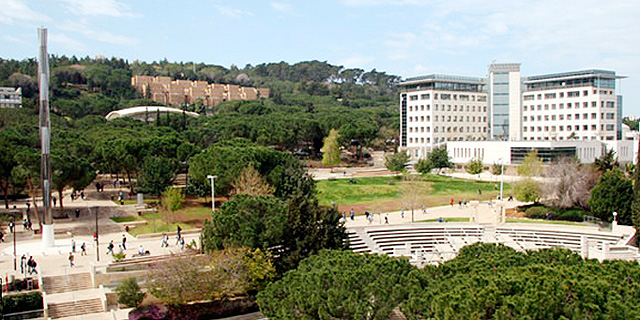
Israeli Academic Institutions Quickly Adjusted to Remote Learning and There Is No Turning Back
Once campuses were shut down nationwide in mid-March, it took a little over a week for all academic institutions in Israel to shift their curriculum, almost in its entirety, to the web
It remains difficult to foresee the exact details of this revolution but it is clear that even long after the crisis has passed there will be more classes recorded and published online for students than there were before. Even those lecturers who objected to digital teaching will now be more prone to allow their classes to be filmed, Hossam Hayek, dean of bachelor’s degree studies at Technion, told Calcalist.
One possible change brought about by the digitalization of academic studies is that students will be required to watch a recording of a lesson in advance and arrive in class for in-depth discussions and questions. Soffer’s vision goes even further, to create a Wikipedia-like collaborative online environment in which students can collaborate and answer questions together. Another issue that can be advanced through online classes is the integration of Israel’s ultra-Orthodox (Haredi) Jewish minority. As classes held with a mixed-gendered audience are considered by many to be against Haredi religious code, eliminating the need to be physically present may encourage more people from this group to take part in academia.With a lot of the previously frontal classes turning digital, universities could convert the extra space on campus to create a supportive environment for entrepreneurship and innovation, for example by establishing startup accelerators, Zilbershats said. Zilbershats also believes online classes could help different institutions collaborate, especially in fields that are suffering from a shortage of faculty staff, such as natural science.
Remote learning can also make academic studies more accessible to people living far away from the physical institutions and could make them cheaper, University of Haifa President Ron Robin said. Robin, however, believes that it is impossible to turn all academic degrees completely digital. “Creativity is ignited when people look each other in the eye and brainstorm,” he said. Despite his background in tech, Ami Moyal, president of the Afeka Tel Aviv Academic College of Engineering, feels the same way. “We have no choice but to be online right now, but this cannot be a long term solution for engineering,” Moyal said. Engineering classes are extremely difficult and require a direct link between students and lecturers as well as interpersonal skills like collaboration and presentation, he explained. One of the main concerns with going digital was that seven universities and 30 colleges did so at the same time, which could have caused the internet or the video platforms to collapse, Robin said. Most issues, however, were isolated, for example, a lecturer whose home internet connection was too weak to sustain the broadcast, he said.